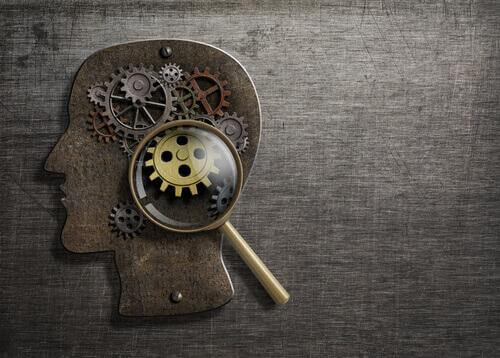Determinism is a philosophy based on the idea that all physical events are predetermined, that is, everything is derived from an inevitable chain of causes and consequences, there are many types of determinism: religious, economic, genetic, etc. In this article, we’ll talk about mechanistic determinism.
Are we free to make decisions? Many thinkers and philosophers have asked themselves these questions throughout history, free will?What about anything that assumes its existence or not? This has been an interesting philosophical theme throughout history: our subjective experience indicates freedom of choice, but when studying the brain, there are many indications that indicate a strong mechanistic conditioning.
- Mechanistic determinism is based on the idea that humans are like a machine.
- So the brain would be a tool capable of receiving a series of stimuli.
- Processing them and producing other stimuli.
- Free will is just an illusion formed by the fact that the processes between the entry and exit of stimuli are unknown.
In this article, to understand mechanistic determinism, we will explore two aspects: first, we will talk about the principles and reasons that lead us to think about determinism; then we will talk about the paradox of the homuncle applied to free will.
The idea of understanding the human mind as a machine was born through the computational theory of the mind, cognitive psychology, in this theory, cognitive psychology compares the brain with a microprocessor, based on the idea that any human behavior can be explained by a number of algorithms and mental processes. For this reason, the human brain has been compared to a Turing machine.
While the computational theory of the mind is already obsolete – by new connectionist models – it left us with a good reflection, advances in psychology are increasingly allowing us to explain processes and unravel the mysteries of the mind. Will can now be explained by a series of well-defined processes.
All of this leads us to seriously ask ourselves whether human behavior is but an answer to a chain of causes and consequences, or is there really one?In each of us who makes the decisions. Imagine that we can know all the variables that influence human behavior and how it happens. Can we fully and certainly predict what the behavior of each individual (theirs, mine) would be?The answer to this question seems to be a ‘yes’ vote, but in this way we would deny the existence of free will, as we could predetermine the future.
In addition, neuroscience studies show that our brain makes decisions long before we realize them, these results lead us to wonder why consciousness exists, today it is difficult to define whether our mind is deterministic or not, however psychology assumes that behavior can be predicted with some margin of error, so the theory of determinism is of great use for this research.
As a final reflection on determinism, I would like to propose the paradox of the homoncula, which is presented as a theoretical incompatibility between psychology and the existence of free will, in many cases thinking of a paradox can help us become aware of our mistakes. and take new cognitive directions or theoretical perspectives.
The paradox of the homoncula is based on the following: psychology proposes that every behavior or mental process can be described and explained, and free will says that we are free to choose the decision to make, so would that lead us to think that within our brain there is something?who decides; we will call it something homonymous, because it would be as if another human being made the decisions in us.
Well, if it is the homoncula that gives us freedom of choice, who gives it free will?, you could say that within this homoncula, there is another homoncula that makes the decisions; however, from this explanation, we would fall into an infinite paradox of the homocles. We’d compare the human spirit to the matriosque dolls.
Mechanistic determinism offers a useful paradigm for interpreting psychological reality. Furthermore, the evidence we find, as well as the theoretical inconsistencies, seem to lead us in their direction. However, we must not blindly trust; most likely, reality is much more complex and does not enter either of the two extremes (determinism and free will) that make up the continuum.

